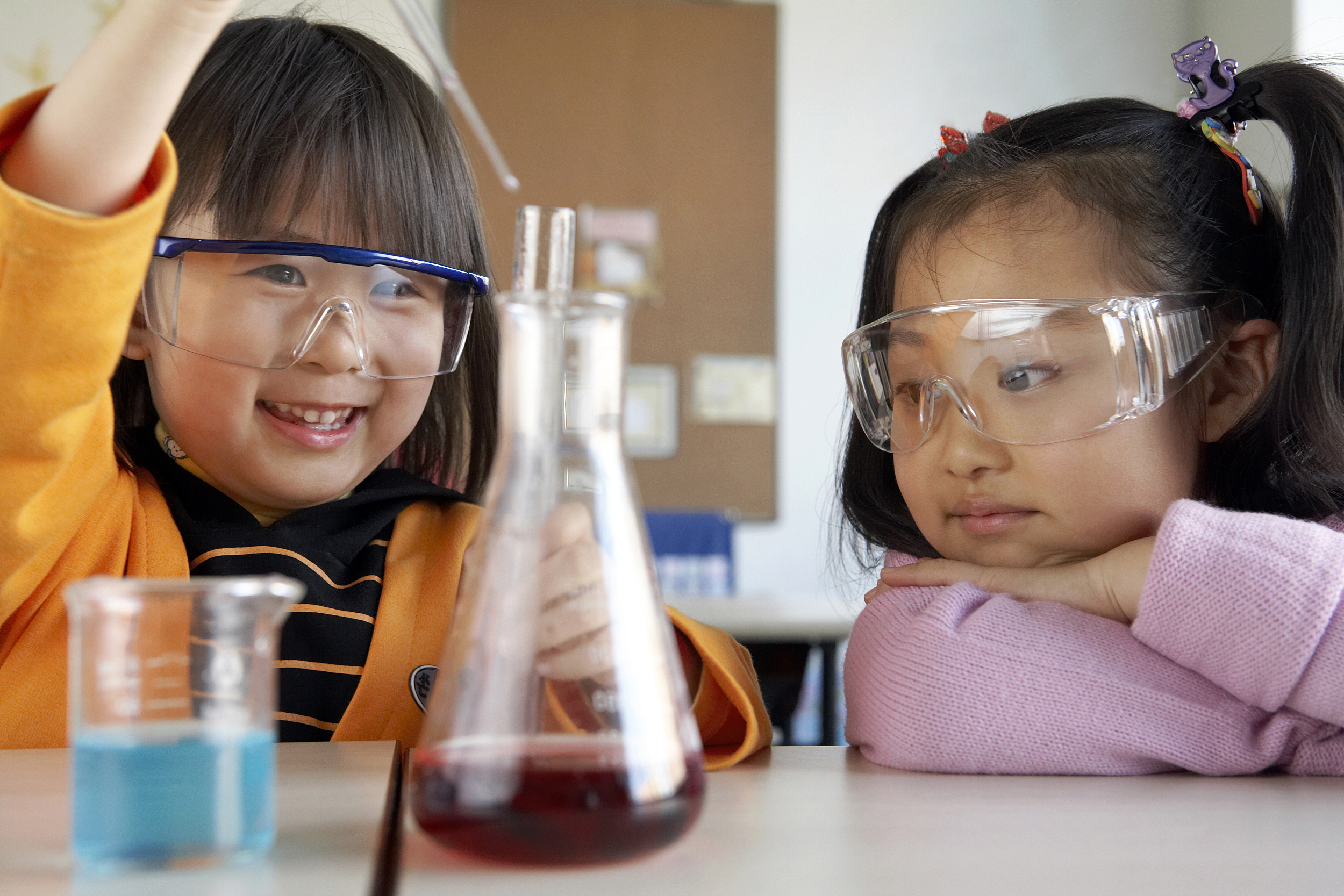Science Literacy Helps Determine Our Future

Students are doing experiments in class. (PHOTO: VCG)
Edited by QI Liming
Making science more popular and improving the scientific literacy of the public in a joint global effort-that's the core spirit of the World Conference on Science Literacy.
Initiated by the China Association for Science and Technology (CAST) in 2018, the World Conference on Science Literacy has been held four times, cumulatively attracting more than 3,000 individuals working in the field of scientific literacy in China and across the world.
This year, at the 2023 World Conference on Science Literacy, foreign participants from 13 international organizations and sci-tech institutions across 29 countries come together to share their experience.
Lidia Arthur Brito, United Nations Educational, Scientific, and Cultural Organization (UNESCO) assistant director general for natural sciences, welcomed delegates to the conference via video that saying science literacy is key for the empowerment of citizens and fostering informed resilient societies. In addition, the scope of scientific literacy within a nation profoundly influences public awareness of science's crucial role in sustainable development.
"It [science literacy] shapes societal attitudes toward scientific progress, policies, and investments. Furthermore, it guides the younger generation towards careers in scientific research. The depth of scientific literacy does become a fundamental determinant in shaping a nation's scientific trajectory. Here we acknowledge China's remarkable commitment to elevating its popular scientific literacy and promoting scientific research," said Brito.
Scientific literacy is a kind of literacy that everyone should enjoy.
José Vieira, president of the World Federation of Engineering Organizations (WFEO) believes that, "As engineers, we all know how much our discipline is critical to building more resilient societies, industries, and to successfully fight climate change and adapt to its consequences. We are well aware of the implications of innovative technologies, and how important it is to reflect on its best uses and the ethics of our practices." This is an ambitious goal, and we should strive to make this dream available to global citizens, he added.
In a fast-moving world, science and technology are shaping our lives in unprecedented ways. They have become powerful driving forces for progress, innovation, and prosperity.
Amakobe Sande, United Nations International Children's Emergency Fund (UNICEF) representative to China, also expressed her feelings about China at the conference, "It has truly been exciting to witness how scientific and technological interventions and innovations have helped to alleviate poverty and transform lives in China, allowing great progress towards meeting the sustainable development goals. China has also introduced a national strategy to integrate education, science and talent, creating opportunities for success."
Science is a beacon of human development, providing the tools to unlock the mysteries of the universe, confront many global challenges, and shape the world we aspire to live in.
According to Smriti Aryal, head of UN Women China, science literacy plays a pivotal role as it equips individuals with the knowledge and skills needed to navigate the complexities of modern life.
"Yet progress towards modernization is attainable only when it is inclusive and equitable. So, today from [the] UN Women's perspective, to fully unleash the global talent to strive towards development goals by using science and innovation, and empowering women and girls in the scientific field and literacy is necessary. It's a worldwide investment for our shared future," said Aryal.
Meanwhile, Peter Gluckman, president of the International Science Council (ISC), told the conference that CAST is a critical member of the ISC, and ISC have many interactions with CAST to work together to use science to achieve a better outcome for all of humanity.
Issues such as promoting the construction of global public scientific literacy organizations, strengthening the global capacity for science popularization, promoting the assessment of global public scientific literacy, advancing mutual learning among civilizations, and joining hands to seek modernization, were also discussed in depth during the conference.






